Los pichiciegos de Fogwill
Por Jorge Izquierdo
PhD en Estudios Hispánicos de la Universidad de Columbia Británica (University of British Columbia)
Actualmente Docente y Coordinador Académico de UDLA Honors, Universidad de las Américas, Quito-Ecuador
Co-fundador de Editorial Festina Lente
 Planteo esta breve lectura de la novela de Fogwill en el marco de la conversación con Diego Sztulwark y el ciclo organizado por Ana Vivaldi, a quienes agradezco por su input reciente al Virtual Koerner’s.
Planteo esta breve lectura de la novela de Fogwill en el marco de la conversación con Diego Sztulwark y el ciclo organizado por Ana Vivaldi, a quienes agradezco por su input reciente al Virtual Koerner’s.
Los pichiciegos es una novela sobre la Guerra de las Malvinas, y en un principio, debo admitirlo, la testosterona detrás del proyecto, no solo por lo excesivamente masculino del tema sino de la escritura me desalentó un poco o me aburrió. Pero la novela de Fogwill funciona más y mejor mientras más se escarba en ella. El planteamiento no gira alrededor de la trama de los soldados (a la final sabemos quién va a ganar la guerra) sino que se construye como un espiral, los personajes vuelven y repiten reflexiones sobre el miedo, sobre el frío y el calor, sobre los detalles autóctonos de cada una de sus comunidades específicas, sobre el archivo y la escritura.
Además, es un texto que se ofrece como metáfora aguda de temas que se desprenden del conflicto armado por las Malvinas, ocurrido a inicios de los ochenta: el colonialismo, el mestizaje, la figura del criollo, el mundo natural. Es decir, calza muy bien en propuestas destinadas a pensar, reflexionar e interrogarse acerca de lo latinoamericano, acerca del Sur.
La novela sigue los pasos de un grupo de alrededor de veinte y cinco soldados desertores. Tienen pactos turbios con algunos británicos, pero que no les garantiza nada, se esconden de sus propios camaradas argentinos y son testigos privilegiados de la derrota bélica, que no puede ser otra que la derrota del proyecto Estado-nación. A los pichis los lidera un grupo conocido como los Reyes Magos. Sus circunstancias se conectan muy bien con, por ejemplo, las tantas historias sobre Lope de Vega, el pichi original, si se quiere. Renegado, violento, solitario, pero donde Lope tiene sueños de grandeza los Magos desean para ellos y su grupo cosas mucho más terrenales, como polvo químico para cubrir heces. También se me ocurre que la naturaleza de los pichis ayuda a entender el carácter criollo: personas de origen europeo nacidos en suelo americano y destinados a permanecer en él. Tienes ciertos privilegios (puertas adentro) pero eres desposeído apenas te colocas ante el Imperio. Por corregir esa injusticia lucharon figuras como Bolívar, Sucre y San Martín (otros Reyes Magos, otros pichis)… pero cometieron muchos otros errores en el camino y murieron traicionados por el mismo vuelco independentista.
Con la lectura de la novela de Fogwill me puse a pensar más en algo que Sztulwark dijo en un momento de la conversación que tuvimos con él. Dijo algo así como que estaba convencido de que las Madres de la Plaza de Mayo fueron las responsables directas de salvar a su país o rescatarlo, no me acuerdo las palabras exactas.
Más allá de lo que se pueda pensar ahora, en términos críticos, de las Madres de la Plaza de Mayo, por poner otro ejemplo del Cono Sur, en los movimientos sociales que luego conformaron los recientes gobiernos del Frente Amplio en el Uruguay, me pareció válido pensar en esto que planteaba Sztulwark, que en un determinado momento esos grupos, resistiendo a la dictadura, dotaron de sentido a algo que a todas luces perdía todo sentido, pero habría que entender que a la larga es un gesto conservador no progresista, valor, este último, al que a veces asociamos los procesos de la izquierda, en cuanto a que buscaron conservar, literalmente, el Estado-nación.
La postura de los pichiciegos de Fogwill frente al proyecto argentino tampoco es progresista, pero sí es radical: cavar un hueco en la tierra, desconsiderando que afuera existen los países, como insectos inmundos. ¿Es esa es la auténtica y pobre postura del criollo lationamericano? Casi al inicio de la novela, uno de los pichis quiere saber por qué “el uruguayo” está peleando en la guerra:
-…¿Si vos sos uruguayo, por qué carajo estás aquí?
-Porque me escribieron argentino. ¡Soy argentino!
-Che… ¿y por qué te dicen uruguayo?
-Porque yo nací ahí, vine de chico…
-¡Es una mierda el Uruguay!
-Sí, mi viejo dice que es una mierda. (Fogwill, 16-17)
Se refieren, creo, a que allá hay dictadura también. Ese país también está jodido por eso.
Existe un marco teórico, desarrollado por el antropólogo francés Claude Lévi-Strauss, para entender la organización de sociedades primitivas según el modelo de las sociedades frías y el modelo de las sociedades calientes. Lo frío en este caso, y reduciendo las cosas al mínimo, tiene que ver con sistemas estáticos, una organización social que se asienta, inmóvil. Lo caliente, en cambio, tiene que ver con una inclinación natural hacia la mutación constante y el movimiento. En la novela de Fogwill hay un planteamiento sobre algo muy similar pero en términos de sobrevivencia. Estar frío significa estar moribundo, estar helado es estar muerto. Estar caliente aparece muchas veces en relación del impulso sexual, otro tema constante del libro, cómo, en medio de la guerra, estos soldados desearían estar “culeando”.
Por último, y esta es la parte que me interesa, el tema es planteado a manera de transición. Una forma de negar que existan cosas tan monolíticas como el frío y el calor, para empezar, porque están conectadas muchas veces, y ese es el punto. Según uno de los pichis: “estás dos o tres días en el calor y lastima salir al frío. Pero los que estuvieron un tiempo en el calor –parece mentira- resisten el frío más y por más tiempo” e insiste “el que estuvo en el frío, siempre en el frío, está frío, olvidó. Está listo, está frío, no tiene más calor en ningún lado y el frío lo come, le entra, ya no hay calor en ningún sitio, lo único que puede calentar es el frío, quedarse quieto, y en cuanto puede imaginar que ese frío quieto es calor, se deja estar al frío, comienza a helarse y el frío ya deja de doler y termina”; y es casi igual si estás todo el tiempo en el calor: “…te quedás como dormido y ya nada te gusta, ni el frío ni el calor, ni el aire, ni vos mismo: nada te gusta” (Fogwill, 140-141). Sospecho que estas palabras podrían servir para adentrarse y entender ciertos temas relacionados a la memoria cultural de América Latina.
Todxs somos pichis, nada nos gusta.
Fogwill. (2006). Los pichiciegos. Buenos Aires: Interzona
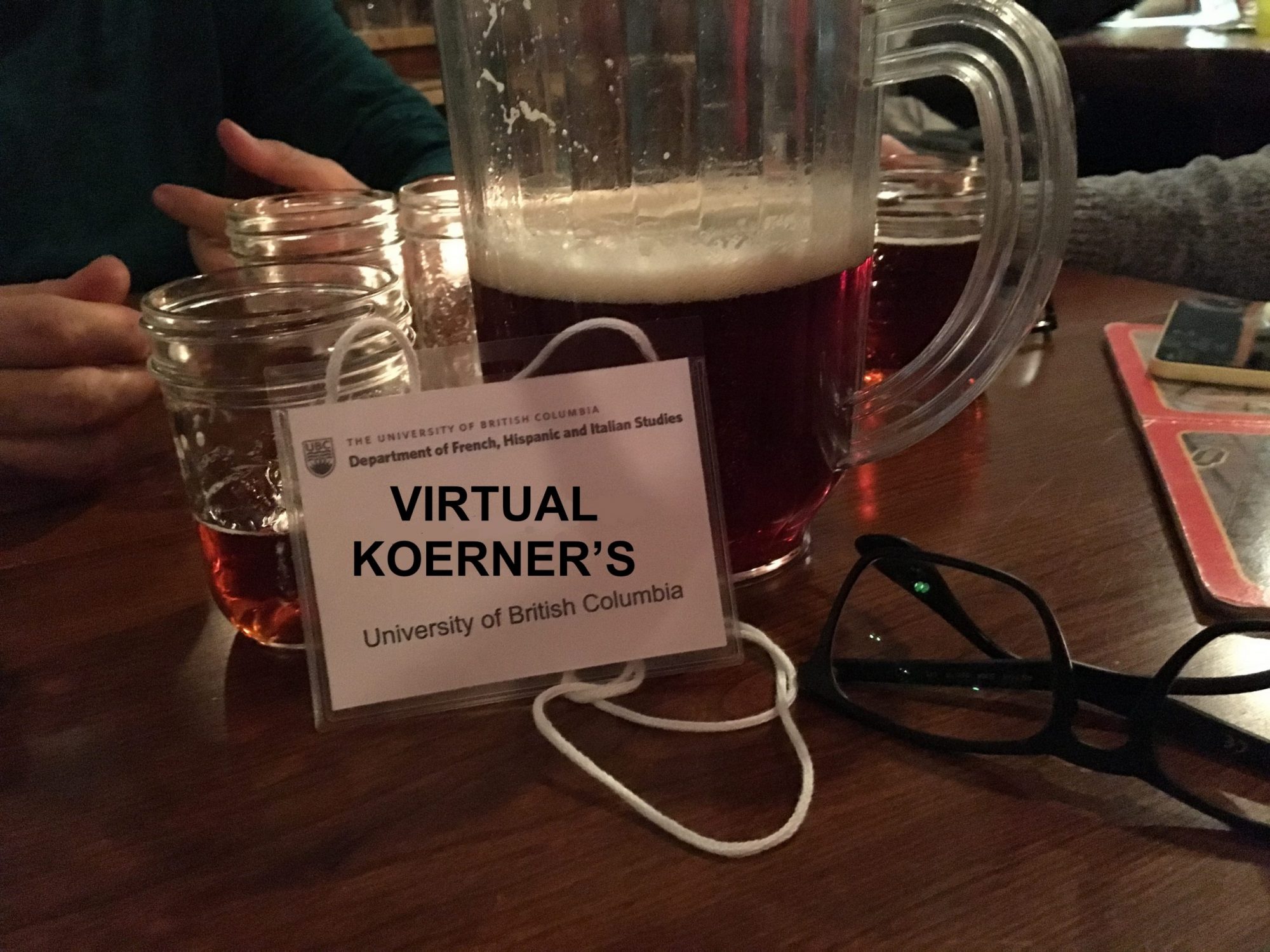
 Thanks to everyone who took part in last week’s discussion of Nelson Garrido’s work. It was an interesting and thought-provoking conversation, and we will have many questions for Nelson when he joins us on Wednesday.
Thanks to everyone who took part in last week’s discussion of Nelson Garrido’s work. It was an interesting and thought-provoking conversation, and we will have many questions for Nelson when he joins us on Wednesday.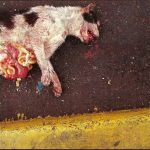 Thanks to everyone who took part in last week’s discussion of Butler and Appelbaum. There were fewer participants than sometimes, but it was an engaging and productive discussion about representation, photography, and violence.
Thanks to everyone who took part in last week’s discussion of Butler and Appelbaum. There were fewer participants than sometimes, but it was an engaging and productive discussion about representation, photography, and violence. Planteo esta breve lectura de la novela de Fogwill en el marco de la conversación con Diego Sztulwark y el ciclo organizado por Ana Vivaldi, a quienes agradezco por su input reciente al Virtual Koerner’s.
Planteo esta breve lectura de la novela de Fogwill en el marco de la conversación con Diego Sztulwark y el ciclo organizado por Ana Vivaldi, a quienes agradezco por su input reciente al Virtual Koerner’s.  Thanks to everyone who took part in this week’s discussion of Cortázar’s “Las babas del diablo” and Antonioni’s Blow-Up. It was both productive and fun, I felt. We touched on a lot of topics: representation, violence, gender, subjectivity, machines, objectification… Personally, I remain haunted by the movie’s final scene, the invisible tennis ball, the man lost in the park with his camera on the ground.
Thanks to everyone who took part in this week’s discussion of Cortázar’s “Las babas del diablo” and Antonioni’s Blow-Up. It was both productive and fun, I felt. We touched on a lot of topics: representation, violence, gender, subjectivity, machines, objectification… Personally, I remain haunted by the movie’s final scene, the invisible tennis ball, the man lost in the park with his camera on the ground.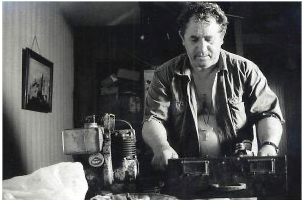 To return briefly to film: Furthering Page’s argument in the vocabulary of Sztulwark, we might say that Mundo Grúa performs an aesthetic coaching, but does not confirm Diego’s ‘ontological optimism.’ Rulo, Mundo Grúa‘s protagonist, is the bricoleur par excellence, but his efforts to assemble and re-arrange the detritus of his lifeworld are constantly thwarted. In one scene, Rulo stops and expresses his admiration for a large film projector. The implications are clearer than they may first appear. Rulo the repairer is fascinated by the smooth-functioning projector just as he views the crane as a space of free-movement. However, Mundo Grúa shows both to be idealistic fantasy spaces, unattainable for and unrelated to Rulo and his lifeworld. On the one hand then, we should reiterate Page’s argument to read the film as anti-representational in the sense that film can not provide direct depictions of life, capital, space, etc. But, it is important to emphasize the way Mundo Grúa, at the aesthetic level, interrupts rather than smoothes and synthesizes depictions through neat cross-cuts. The gambit of Mundo Grúa is one of filmic dysfunction and repair in opposition to the smooth-functioning spaces of commercial cinema.
To return briefly to film: Furthering Page’s argument in the vocabulary of Sztulwark, we might say that Mundo Grúa performs an aesthetic coaching, but does not confirm Diego’s ‘ontological optimism.’ Rulo, Mundo Grúa‘s protagonist, is the bricoleur par excellence, but his efforts to assemble and re-arrange the detritus of his lifeworld are constantly thwarted. In one scene, Rulo stops and expresses his admiration for a large film projector. The implications are clearer than they may first appear. Rulo the repairer is fascinated by the smooth-functioning projector just as he views the crane as a space of free-movement. However, Mundo Grúa shows both to be idealistic fantasy spaces, unattainable for and unrelated to Rulo and his lifeworld. On the one hand then, we should reiterate Page’s argument to read the film as anti-representational in the sense that film can not provide direct depictions of life, capital, space, etc. But, it is important to emphasize the way Mundo Grúa, at the aesthetic level, interrupts rather than smoothes and synthesizes depictions through neat cross-cuts. The gambit of Mundo Grúa is one of filmic dysfunction and repair in opposition to the smooth-functioning spaces of commercial cinema.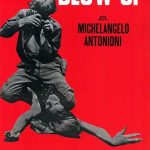 Thanks to everyone who took part in last week’s discussion with Diego Sztulwark. People have commented to me that it was one of the best sessions we have had to date, and most of the credit for that goes to Ana Vivaldi, for putting together an excellent and very coherent series of readings and conversations in preparation for Diego’s visit. Once again, moreover, I am struck by the continuities in the topics and questions across the last several months, at the very least from Alberto Moreiras’s visit to the present.
Thanks to everyone who took part in last week’s discussion with Diego Sztulwark. People have commented to me that it was one of the best sessions we have had to date, and most of the credit for that goes to Ana Vivaldi, for putting together an excellent and very coherent series of readings and conversations in preparation for Diego’s visit. Once again, moreover, I am struck by the continuities in the topics and questions across the last several months, at the very least from Alberto Moreiras’s visit to the present.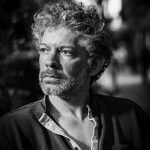 Thanks to everyone who took part in last week’s discussion. It was, I thought, a very useful conversation about Diego Sztulwark’s book,
Thanks to everyone who took part in last week’s discussion. It was, I thought, a very useful conversation about Diego Sztulwark’s book,